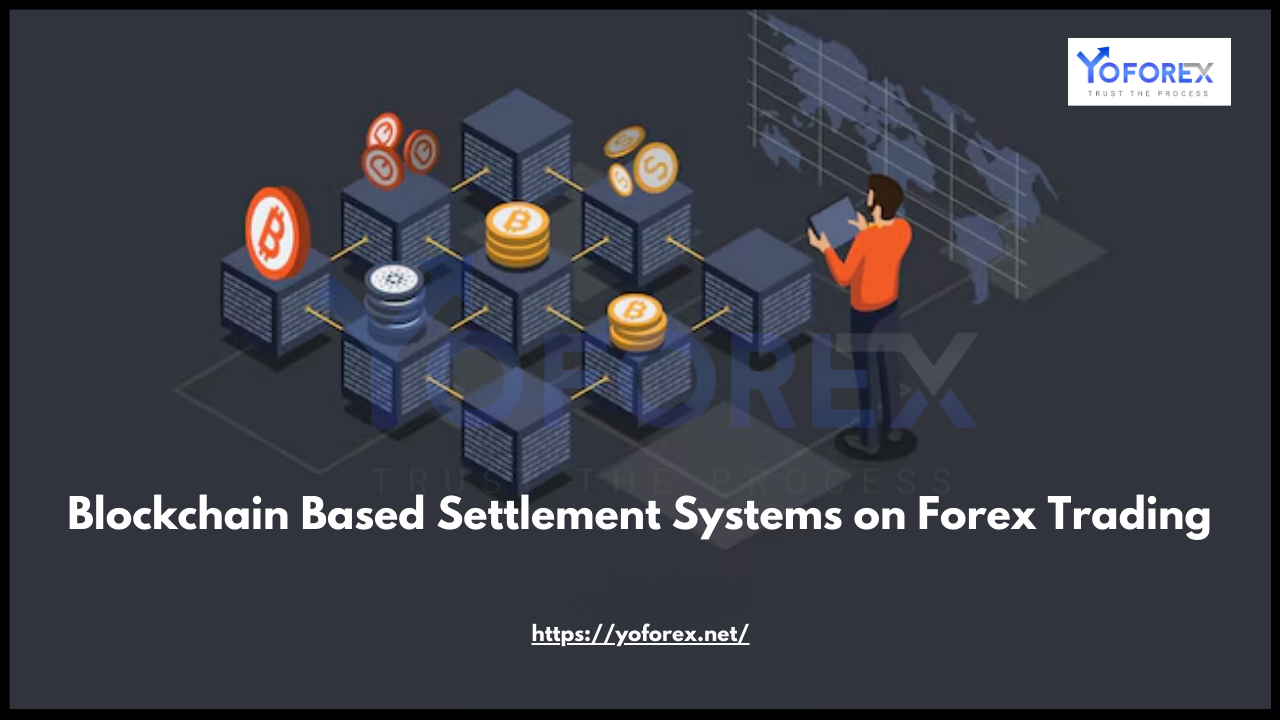The foreign exchange (Forex) market is the largest and most liquid financial market in the world, with daily trading volumes exceeding $7 trillion. Despite its size, the industry continues to grapple with inefficiencies, delays, and high costs associated with traditional settlement systems. Blockchain technology is increasingly being explored as a solution to these challenges, offering a decentralized, transparent, and efficient approach to forex settlements. This article explores the impact of blockchain-based settlement systems on forex trading and how they are transforming the industry.
Understanding Blockchain in Forex Trading
Blockchain is a distributed ledger technology (DLT) that records transactions in a secure and immutable way. Unlike traditional settlement systems, which rely on centralized institutions such as banks or clearinghouses, blockchain-based systems use smart contracts and decentralized networks to facilitate transactions. This eliminates intermediaries, speeds up settlements, and reduces the risk of fraud.
Key Benefits of Blockchain-Based Settlement Systems in Forex Trading
1. Reduced Transaction Costs
Traditional forex settlements involve multiple intermediaries, including banks, brokers, and clearinghouses. These intermediaries charge fees that contribute to the overall cost of trading. Blockchain eliminates the need for these intermediaries, significantly reducing transaction costs and making forex trading more cost-effective.
2. Faster Settlements
Forex transactions typically take one to two days to settle due to the involvement of multiple parties and different time zones. Blockchain enables near-instant settlements by using smart contracts that automatically execute trades once pre-defined conditions are met. This reduces counterparty risk and enhances liquidity in the market.
3. Greater Transparency and Security
Blockchain technology records every transaction on an immutable ledger that is accessible to all participants. This enhances transparency and reduces the risk of fraud, as all trades can be verified in real-time. Additionally, blockchain’s encryption protocols ensure that transactions are secure and protected from cyber threats.
4. Improved Liquidity Management
By reducing settlement times and minimizing the reliance on intermediaries, blockchain enhances liquidity management for forex traders. With faster access to funds, traders can reallocate capital more efficiently and respond to market changes in real time.
5. Lower Counterparty Risk
Since blockchain-based settlements occur in real-time or within minutes, the risk of a counterparty defaulting on a trade is minimized. Traditional forex trading often involves a credit risk where one party fails to meet its obligations due to delays in the settlement process. Blockchain’s instant transaction verification mitigates this issue.
Challenges of Implementing Blockchain in Forex Trading
While blockchain presents numerous advantages, its adoption in forex trading also faces some challenges:
1. Regulatory Uncertainty
Forex markets are heavily regulated, and the integration of blockchain-based settlements must comply with existing financial laws. Different jurisdictions have different regulations, making it difficult to create a standardized global framework for blockchain adoption.
2. Scalability Issues
Blockchain networks, especially public ones like Bitcoin and Ethereum, often experience scalability limitations. High transaction volumes in forex trading could put excessive strain on blockchain systems, leading to congestion and increased transaction costs.
3. Integration with Legacy Systems
Most forex trading platforms and financial institutions rely on traditional settlement systems. Transitioning to blockchain-based systems requires significant investment in infrastructure and technology, which can be a barrier to widespread adoption.
4. Volatility of Digital Assets
Many blockchain-based settlements involve cryptocurrencies or stablecoins. While stablecoins are designed to reduce volatility, fluctuations in digital asset values can still pose risks for forex traders using blockchain-based settlement mechanisms.

Notable Blockchain-Based Forex Settlement Initiatives
Several financial institutions and blockchain projects have already started exploring blockchain-based forex settlement systems:
- JPMorgan’s Onyx and JPM Coin: JPMorgan has developed a blockchain-based interbank payment system that facilitates real-time settlements for forex and other financial transactions.
- IBM’s World Wire: IBM’s blockchain-powered cross-border payment solution aims to streamline forex transactions by reducing settlement times and costs.
- Ripple (XRP): Ripple’s payment network uses blockchain technology to facilitate instant cross-border payments, making it a viable solution for forex settlements.
- Central Bank Digital Currencies (CBDCs): Many central banks are exploring blockchain-based digital currencies that could enhance forex trading efficiency.
The Future of Blockchain in Forex Trading
The integration of blockchain-based settlement systems into forex trading is still in its early stages, but its potential is undeniable. In the future, we can expect:
- Wider Adoption of CBDCs: Governments and central banks may launch their own digital currencies to facilitate forex settlements more efficiently.
- Hybrid Models: Financial institutions may combine blockchain with traditional systems to create more scalable and compliant solutions.
- Improved Regulations: As regulators gain more understanding of blockchain technology, clearer frameworks will emerge, supporting its adoption in forex markets.
- Artificial Intelligence and Smart Contracts: AI-powered blockchain platforms could further optimize forex trading by automating complex settlement processes.
Conclusion
Blockchain-based settlement systems have the potential to revolutionize forex trading by reducing costs, increasing transparency, enhancing liquidity, and minimizing counterparty risks. While there are challenges to widespread adoption, advancements in regulatory frameworks, scalability solutions, and hybrid blockchain models will likely accelerate the transition toward a more efficient forex market. Traders and financial institutions that embrace blockchain technology will be well-positioned to benefit from its transformative impact in the years to come.

